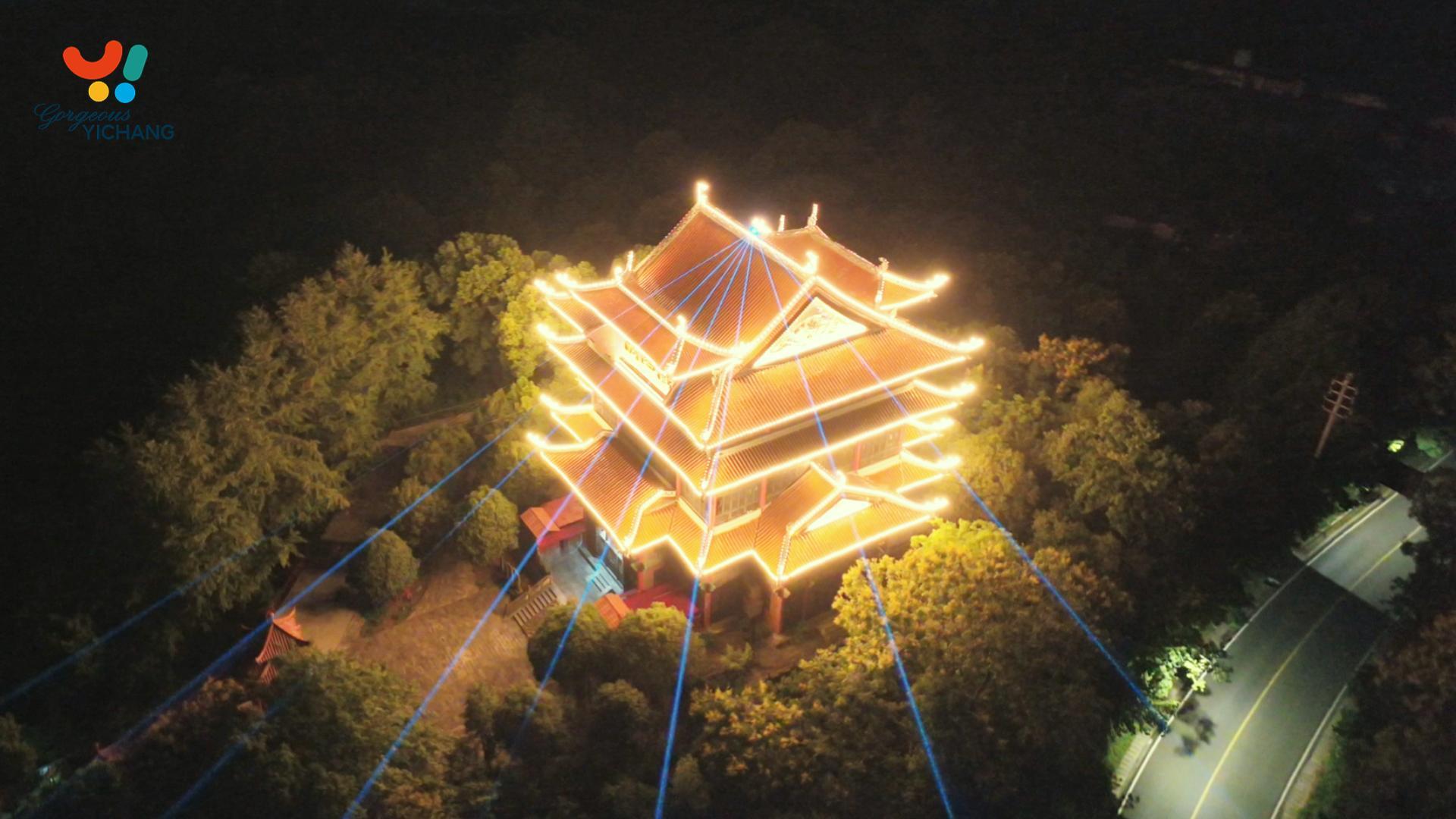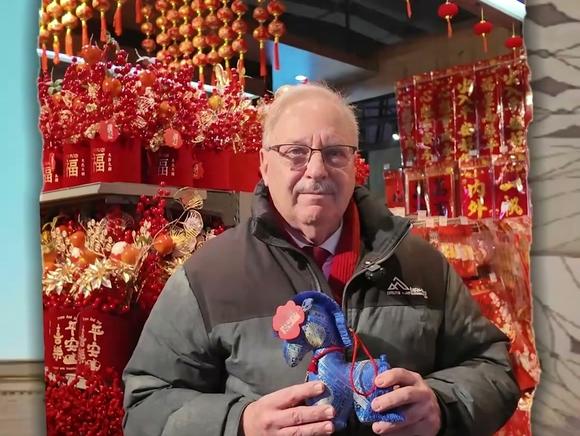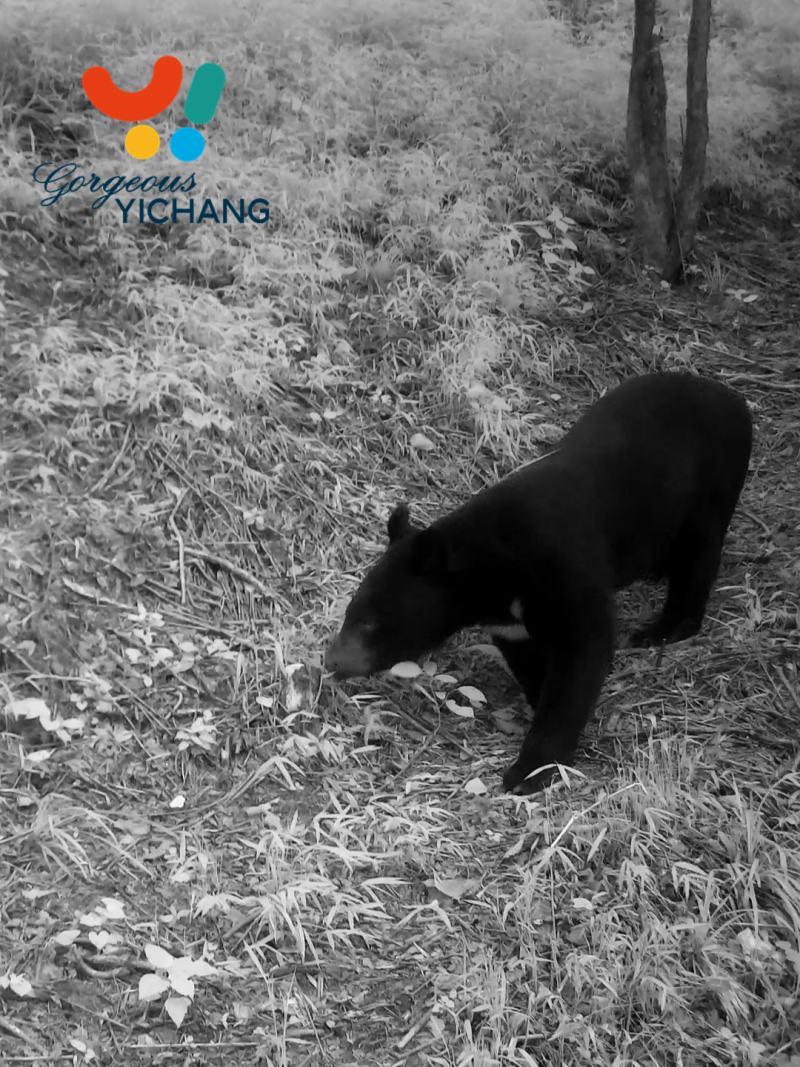Ancient tea trees find new home in Zigui County
2024-12-06 19:12:41
By Chen Zai. Hu Xingjun, Hao Mingxi, Han Mengchen also contributed to this article. Photo by Hu Xingjun and Zheng Jiayu.
On December 4, our journalist visited the Zigui Simian Tea Germplasm Resource Garden, where 56 ancient tea trees stood in neat rows, vibrant and flourishing, with bright tea flowers blooming on their branches.
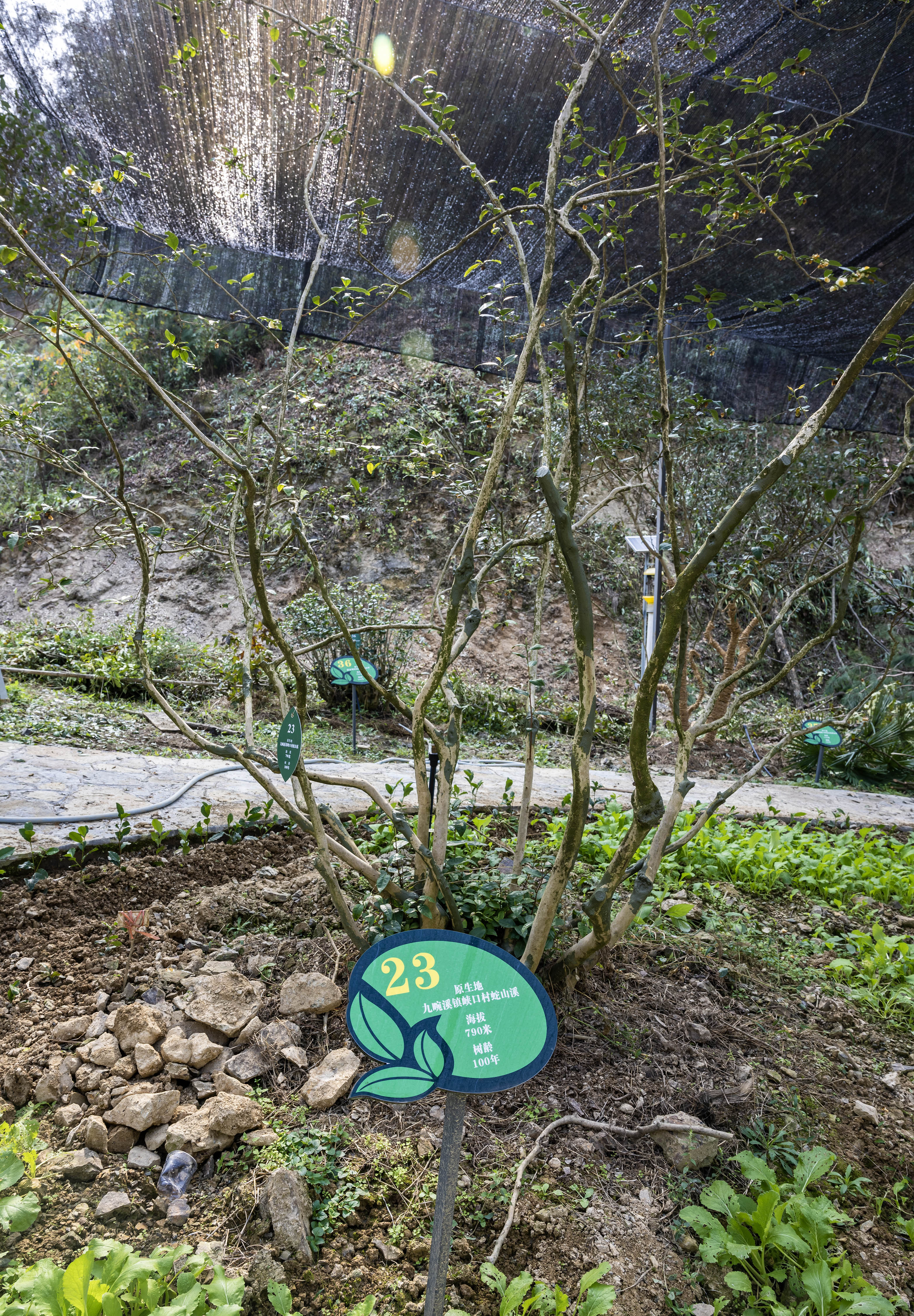
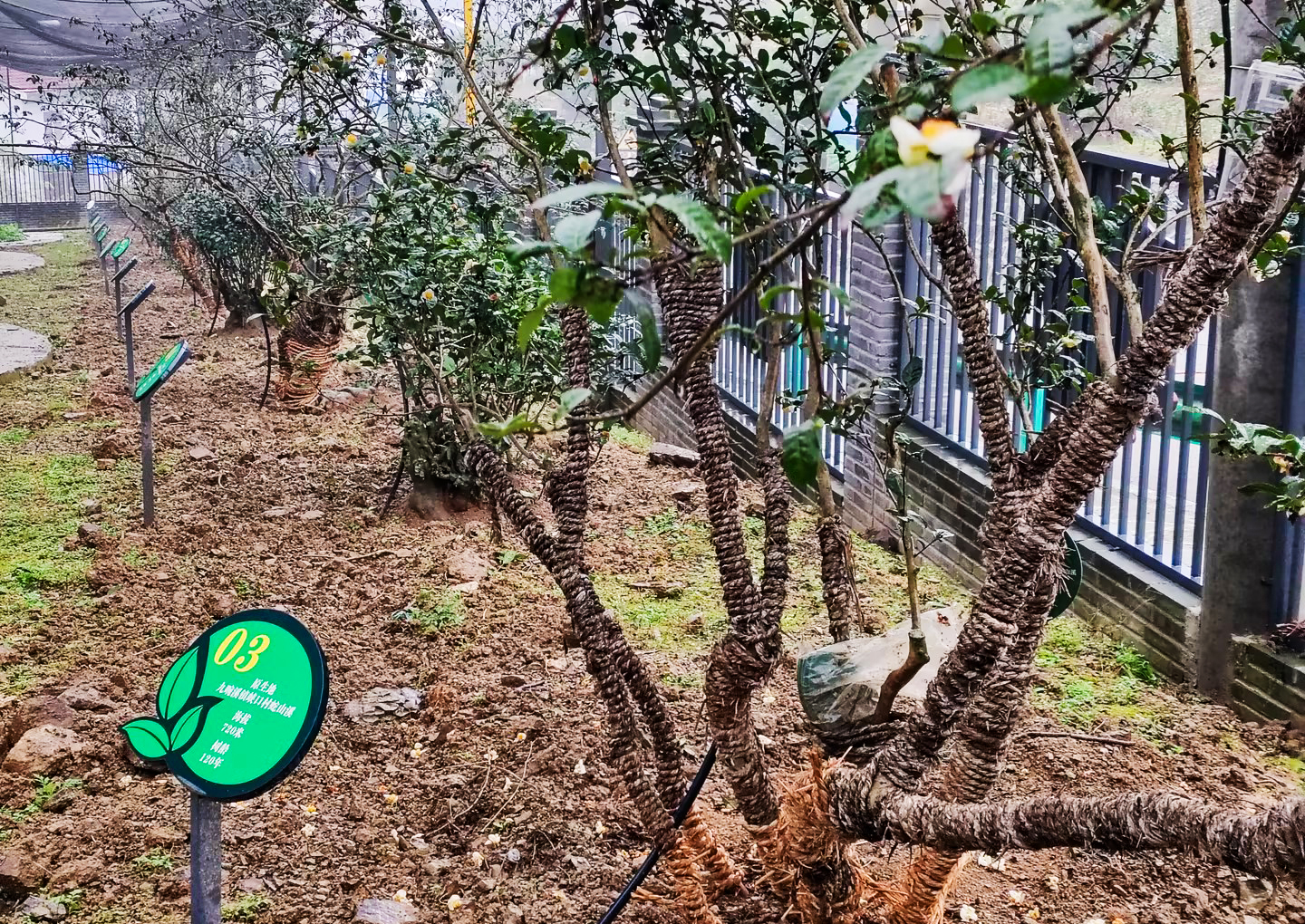
On December 4, our journalist visited the Zigui Simian Tea Germplasm Resource Garden, where 56 ancient tea trees stood in neat rows, vibrant and flourishing, with bright tea flowers blooming on their branches.


Each tea tree is marked with a nameplate that provides detailed information, including the tree's identification number, place of origin, and age.
The Zigui Simian Tea Germplasm Resource Garden, established in early 2023 in Jiuwanxi Town, Zigui County, aims to protect ancient tea trees, especially those over 80 years old.
Historically, Zigui County has been a primary origin and significant production area for tea, with its Simian Tea especially favored for its tender leaves with countless silver threads. During the Qianlong era of the Qing Dynasty, the tea from Jiuwanxi Town of Zigui County was presented to the Forbidden City, where Qianlong named it "Simian Tea", meaning "silken", a tradition that has continued for 226 years.
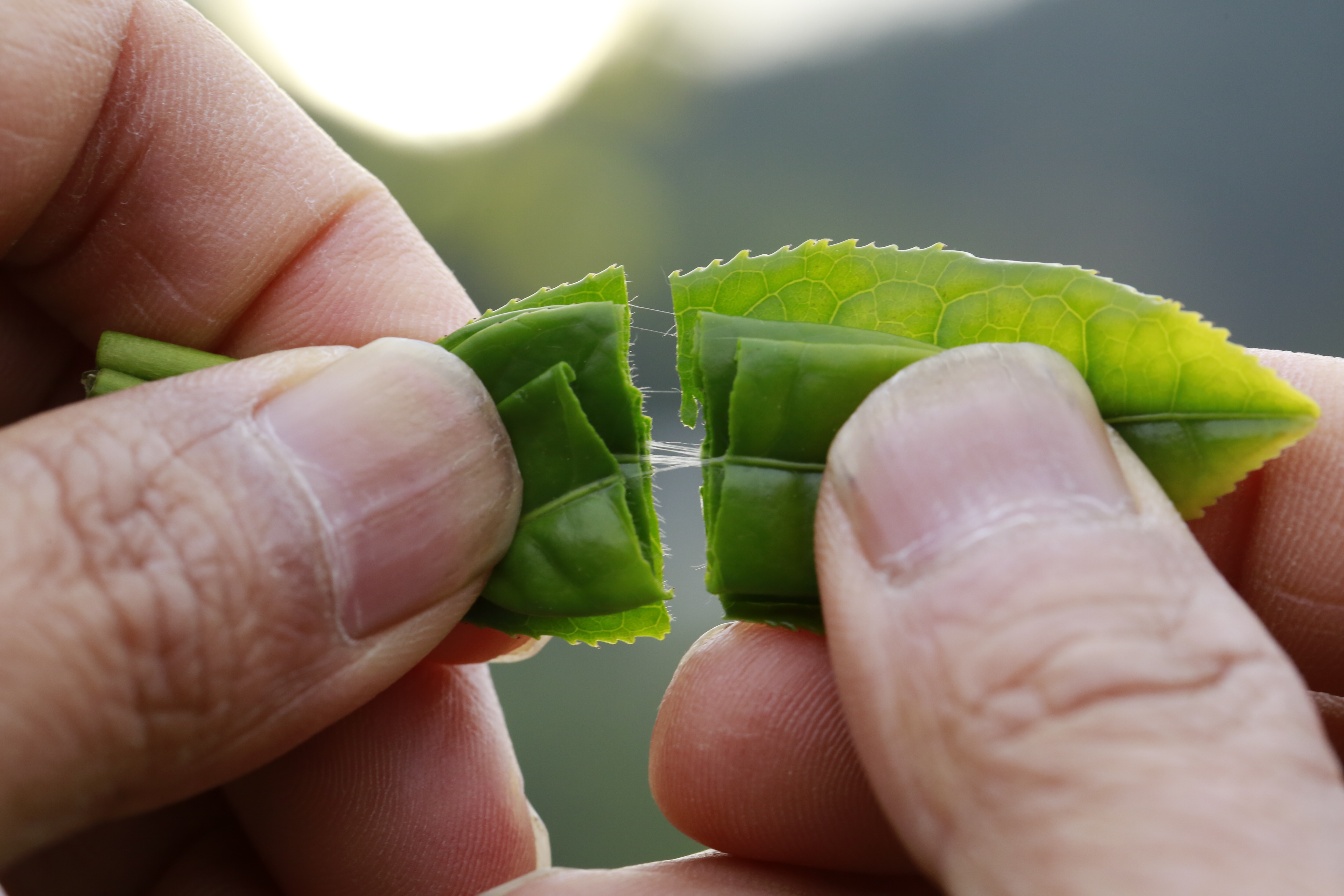
The name "Simian Tea", meaning "silken", reflects its tender leaves adorned with countless silver threads.
However, in a 2012 survey, Mr. Gong Wanxiang, the garden’s manager and an intangible cultural heritage inheritor of Simian Tea-making techniques, discovered that many ancient tea trees over a century old had died due to human destruction and natural disasters.
To protect these valuable tea tree resources, the Zigui Simian Tea Germplasm Resource Garden was established to focus on the conservation of native tea trees over 80 years old.
Gong Wanxiang's and his team developed the Multi-year Segmented Transplanting Method, addressing the industry's challenge of transplanting ancient tea trees with few roots, ensuring a 100% survival rate for large tree transplants.
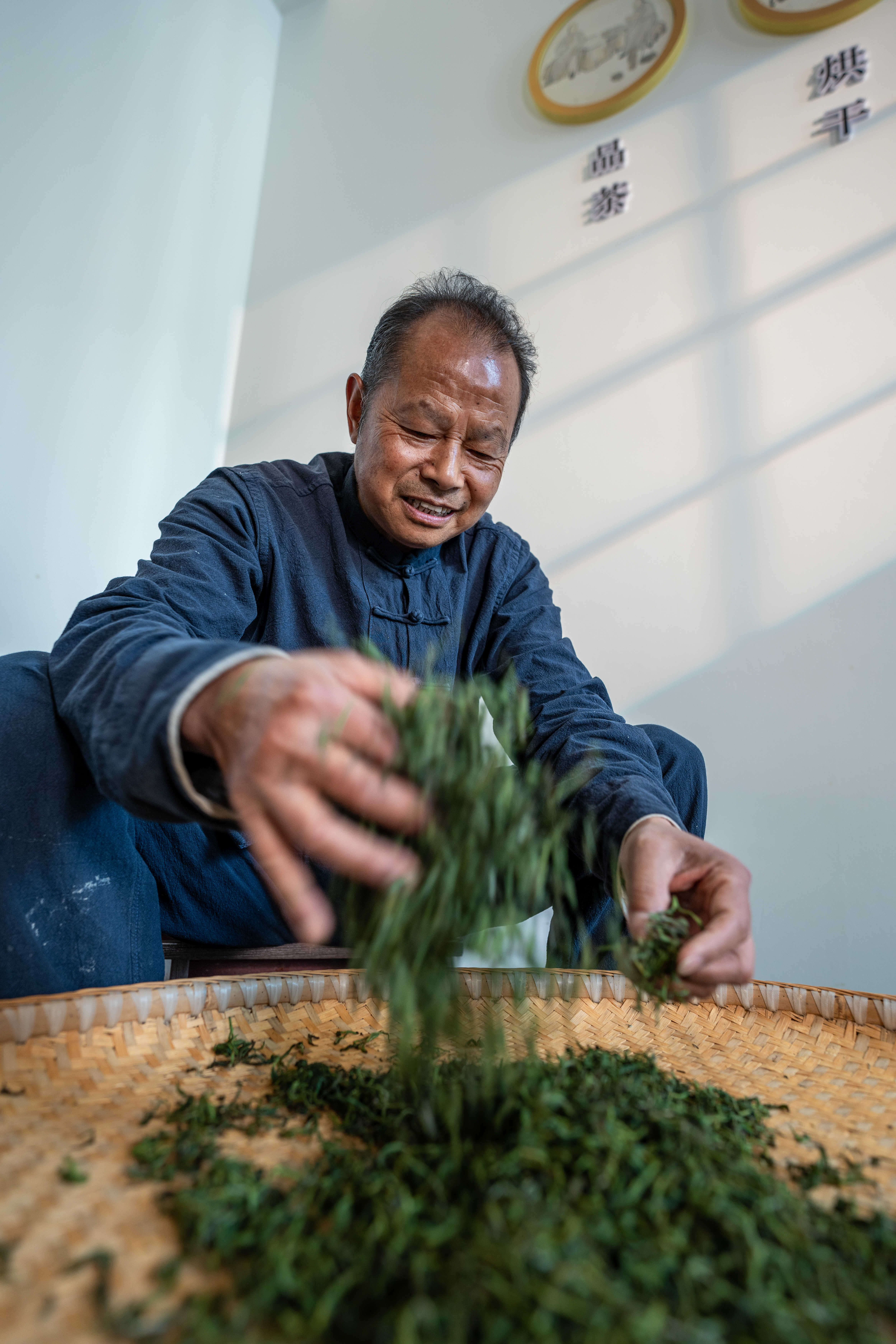
Gong Wanxiang, the manager of the Zigui Simian Tea Germplasm Resource Garden and intangible cultural heritage inheritor of Simian Tea-making techniques.
Currently, the garden has collected 56 ancient tea trees from the county, with over 40 trees aged over a century, including one over 300 years old. By studying the yield, quality, and resistance characteristics of these ancient tea trees, the garden provides valuable research resources for the cultivation of superior tea varieties.
In addition to offering a platform for researchers to study and develop new varieties, the garden also serves as a window for tea enthusiasts and tourists to learn about the culture of Zigui Simian Tea.
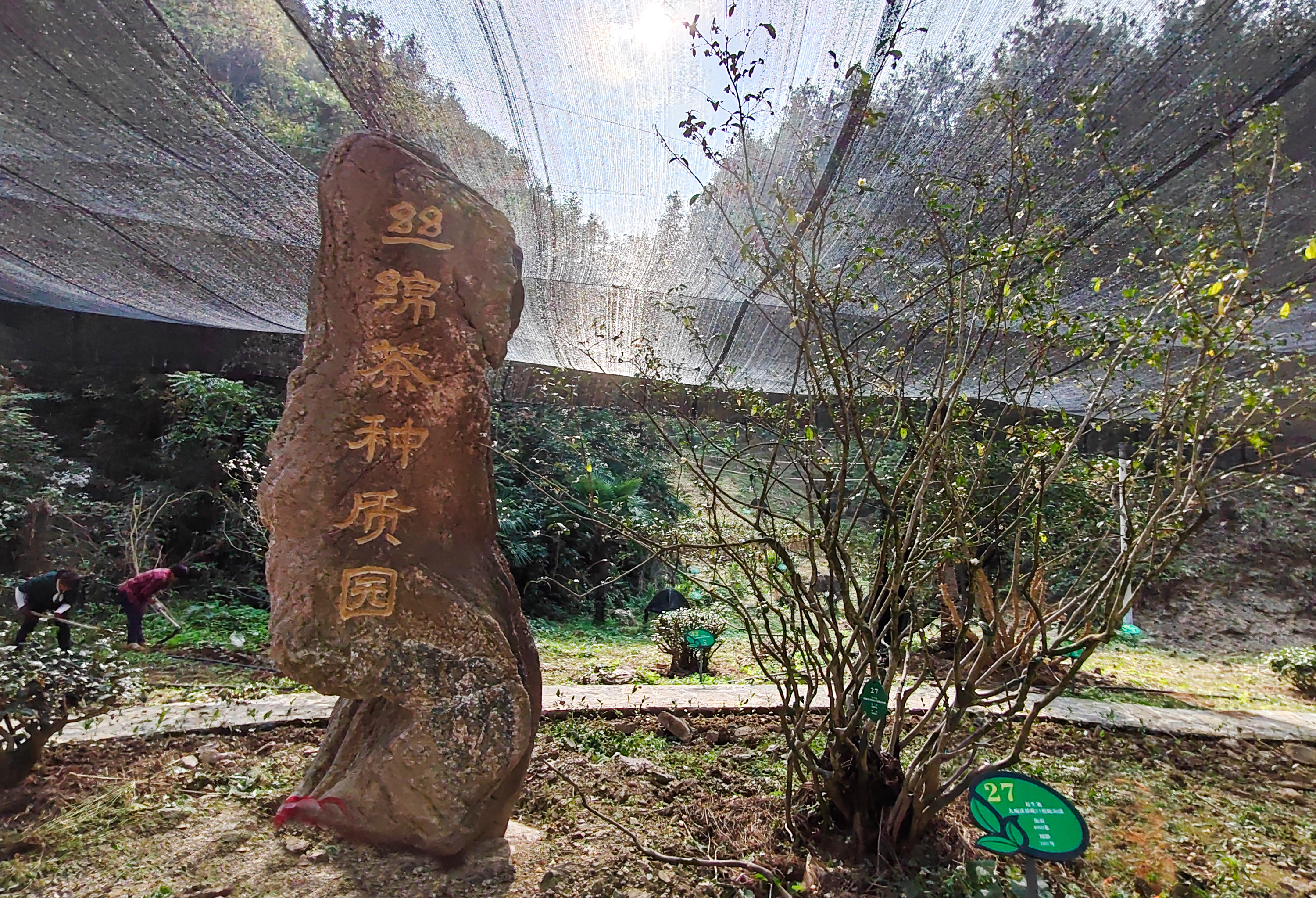
As the city's first tea germplasm resource garden, the Zigui Simian Tea Germplasm Resource Garden not only preserves the "chip" of Zigui Simian Tea but also strongly supports the sustainable development of the entire tea industry.

